Confederate Truths: Documents of the Confederate & Neo-Confederate Tradition from 1787 to the Present.
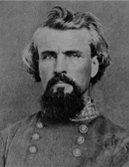

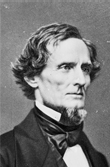
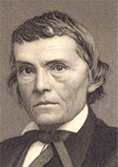

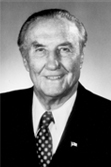
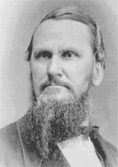
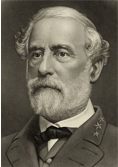
Mr. Pinckney Wishes to Save the Union from Abolitionist Petitions, Speech in the U.S. House, Feb. 8,1836
Mr. Pinckney Wishes to Save the Union from Abolitionist Petitions, Feb. 8,1836
A very good book on the debates in congress over slavery in this period is "Arguing About Slavery: The Great Battle in the United States Congress," by William Lee Miller, published by Knopf. It gives you a good idea of the temper of the pro-slavery elements in Congress.
Speech in the House of Representatives, February 8, 1936, 24th Congress, 1st Session, Appendix to the Congressional Globe, pages 768-9. Note: Prior to the Civil War the United State the term "Confederacy" was used to refer to the United States.
Abolition of Slavery
SPEECH OF HON. H.L. PINCKNEY,
OF SOUTH CAROLINA,
In the House of Representatives,
February 8, 1936,
On the resolution offered by him relative to the Abolition of Slavery.
The following resolution, submitted by Mr. Pinckney, of South Carolina, being under consideration—
Resolved, That all the memorials which have been offered, or may hereafter be presented to this House, praying for the abolition of slavery in the District of Columbia, and also the resolutions offered by an honorable member from Maine, [Mr. Jarvis.] with the amendment thereto proposed by an honorable member from Virginia, [Mr. Wise,] and every other paper or proposition that may be submitted in relation to that subject, be referred to a select committee, with instructions to report that Congress possesses no constitutional authority to interfere in any way with the institution of slavery in any of the States of this Confederacy; and that, in the opinion of this House, Congress ought not to interfere in any way with the institution of slavery in the District of Columbia, because it would be a violation of the public faith, unwise, impolitic, and dangerous to the Union; assigning such reasons for these conclusions as, in the judgment of the committee, may be best calculated to enlighten the public mind, to repress agitation, to allay excitement, to sustain and preserve the just rights of the slaveholding States, and of the people of this District, and to reëstablish harmony and tranquility amongst the various sections of the Union:
Mr. PINCKNEY said he would not detain the House long. He had offered the resolution before the House upon the most deliberate reflection, and after consultation with several highly respected and judicious friends, and because he honestly believed, it to be the very best course that could be adopted in relation to the dangerous and exciting subject to which it refers. Mr. P. said he was aware of the responsibility he assumed; but, knowing that he was acting for the highest good of the whole country, he was perfectly ready and willing to encounter it. He was acting for the true interests of his constituents, for the true welfare of his native State, and of all the South; and he was neither afraid nor ashamed to add, with a view to the peace and preservation of the Union. But, because he had dared to adopt this course, he had been bitterly assailed by a certain print, (the Telegraph,) and that too before he had even had an opportunity to assign his reasons. Sir, (said Mr. P.,) let me say once for all, that I am not to be driven by newspaper assaults, or calumnious imputations upon my motives, from my settled convictions of public duty, nor from my determined purpose to take high and patriotic ground upon this subject, and to prevent it, as far as I am able to do so, from being made a perpetual source of agitation, to the run of the South, and the destruction of the Union. I have no fear that the assaults to which I have alluded will injure me in the estimation of the citizens of Charleston. My constituents have known me long, and they know me well. They know that I am utterly incapable of being tempted to desert my duty to them, in any matter in which their rights or interests are involved; and they will spurn the base imputation upon me, as an insult to themselves. But I do plead guilty to the heinous accusation of desiring harmony – of desiring to produce a safe and advantageous and honorable adjustment of this question. But how, Mr. Speaker? By evading the resolutions offered by the honorable members from Main and Virginia, as I am charged with doing? No, sir; all who know me, either here or in South Carolina, know that I never have evaded or avoided any vote or any question, upon which it has ever been my duty to act as a public representative. It is not my nature; it is not my character. I would disdain to shrink from an open avowal of my sentiments on record of my vote upon any question which any gentleman could make before this House. How then, sir? By retracing ground already gained, and yielding an advantage obtained from the enemy? No, sir; for I know of no ground gained – of no advantage obtained; but I am decidedly of opinion, on the contrary, that we have lost ground daily, by the course that has been pursued, and that we shall lose more and more, the longer it is persisted in. This accusation, then, is absurd. I have evaded nothing; I have yielded nothing. I deny the imputation, and every vile insinuation connected with it.
But, sir, I do desire harmony – by producing harmonious, united, and efficient action – by taking higher ground than has yet been taken – by covering the whole field – by bringing up the main question, and acting upon that, and by doing what no one else has yet attempted to do – by procuring a direct vote and a practical result, UPON THE WHOLE SUBJECT OF THE ABOLITION OF SLAVERY! This is my object, sir. And I am to be denounced for this! Are my constituents to be incited to suspect me, because I am honestly endeavoring to bring this distracting controversy to the very best issue of which it is susceptible? Is it treason to the South, sir, that this House should declare, by a solemn and deliberate vote, that Congress possess no constitutional authority to interfere with slavery in any of the States? Is it treason to the South, that this House should declare, by a solemn and deliberate vote, that Congress ought not, and will not, interfere, in any way, with slavery in the District of Columbia, because it would be a violation of the public faith, and dangerous to the Union? Has such a point as this every been gained before? Has ever such a vote been taken, or such a declaration made, as this? Is it treason to the South to wish to allay excitement, and to repress agitation? Is it treason to the South that a committee should be ordered to draft a report, as ably as they can, to secure and maintain the just rights of the slaveholding states, and of the people of this District, on the one side, and at the same time to restore concord and tranquility amongst the various sections of this Confederacy, on the other? If this be treason to the South, sir, let my constituents judge me. I am responsible to them – but to no individual, be he who he may. If this be treason to the Union, let the people of America decide, for I cheerfully acknowledge that, as a citizen of the Union, I am also responsible to them. But, at all events, however I may be denounced for my audacity, in having acted thus, I have the consolation to know that the propositions I have offered meet the cordial approbation of many members from the South, than whom there are no purer patriots, or more devoted southerners, upon this floor. Several of them have said that they would have rejoiced if this very course had been adopted at the beginning of the session; and I have every reason to believe that it will now be sustained by the almost undivided vote of the whole southern delegation. What then, Mr. Speaker! Am I, and all the southern delegates who act with me, are all of us traitors? And is the individual who has assailed me the only man who understands the interests, or cares for the rights and honor of the South?
But, sir, I feel that I ought to ask pardon of the House for speaking in this manner. It is exceedingly painful to me to speak of myself at anytime, or in any place, but especially before so respectable and enlightened an assembly as this; but, in justice to myself, I could not have avoided it upon the present occasion. Sir, I will only trouble the House with one or two observations more. I wish my constituents to understand my motives. It is my duty, as the Representative of the people of Charleston, to render an account to them of everything that I may say or do in my public capacity; and I wish them to understand me distinctly that they may judge me correctly, and especially before any false impressions may have been created in their minds. I say, then, Mr. Speaker, that I have three great objects in offering this resolution. The first is, as far as possible to arrest the discussion of the subject of slavery within these walls, which I believe to be useless, worse than useless, pernicious to the South, and dangerous to the whole country. The second is, to bring the whole subject of the abolition of slavery to a practical results, in a manner safe and advantageous to the South, satisfactory to the North, and calculated also to tranquilize the country and to confirm the Union. My last object is, (and this indeed substantially includes the whole,) to put down the spirit of fanaticism, to repress the spirit of incendiary agitation, by disseminating throughout the country a calm and temperate report, emanating from this body having the high sanction of the National Legislature, and calculated, both by its own arguments and the high source from which it issues, to produce that sound and rational state of public opinion in the non-slaveholding States, which is equally due to the South and to the preservation of the Union; and for this great purpose, sir, I would cover the whole ground. I would embrace the States, as well as the District of Columbia. I know no reasonable objection to doing so, and it is justified by precedent. It is the very course that was adopted by Congress in the memorable resolution of 1790; a course that was sustained (I believe proposed) by the venerable Madison, and that received the unanimous sanction of the whole southern delegation of that day; and I can see no reason why the same course should not receive the unanimous sanction of the whole southern delegation now. In my humble judgment, it is the only course by which we can bring this matter to an advantageous issue. Hitherto we have been fighting about mere abstractions. Hitherto we have been contending about the rights of petition, and other minor and unimportant points. We have been wasting our energies, and losing ground, upon a false issue; an issue upon which we never can arrive at a practical result; an issue upon which the whole North is united, and the South is divided – and the very debate upon which (so far from doing the least good) only increases the spirit of abolition at the North, inflames excitement at the South, and is daily widening the breach between the different members of the Union.
Now, sir, I am for overstepping these minor, abstract points, and taking higher ground. I am for taking the question upon the whole subject. I would let the right of petition alone, as no way material to the true issue. I would have a broad and comprehensive declaration, that Congress possesses no authority over slavery, here or elsewhere, and will not interfere with it in any way whatever. Is not this the true position for the South, sir? I think it is; and my constituents, too, (all of whom own slaves,) will think upon it, too. Sir, the Abolitionists aim at general emancipation; no candid man can doubt it or deny it. All their writings and publications prove it. You cannot read the proceedings of a single anti-slavery society, or a single production of the incendiary press, without being thoroughly convinced that they contemplate abolition in the States as their grand ultimate object, and that they will never be satisfied with anything short of it, as long as they have the slightest shadow of hope. Now, sir, I would meet them, and defeat them, at once and forever, upon that. I consider that we do but little, if we do not crush their hopes in relation to the States. There can be no doubt that all their attempts to procure abolition in the District are, that it may constitute a foundation for their general scheme. They regard it as an entering wedge, by which they may carry on their operations afterwards to an indefinite extent. Give them this District as a lever, and they will never cease until they bring this Government to act upon the States. I would, therefore, cut off all their hopes at once, as regards the States, by saying to them, plainly and distinctly, that this Government possesses no power whatever by which they could be aided in their views. Satisfy them that they have no hope in relation to the States, and they will soon cease to trouble us in relation to the District. But, "to make assurances doubly sure," I would also extinguish their hopes as regards this District. I would meet them at every point, and put them down on all. I would say to them, that, so far from ever obtaining the aid of this Government in their designs upon the States, they shall never be permitted to even obtain a foothold here. They shall never be permitted to use this District for the for the purpose of convulsion and disunion. And surely, if anything on earth can repress the spirit of incendiary agitation, such proceedings on the part of this House must produce that effect. And not only that, it will not only tend, as I firmly believe, to check and repress the fanatics, but, what is still more important, it will tend, powerfully and irresistibly, to produce a high-toned, generous patriotism, an enlarged, magnanimous, American spirit, in the great body of the non-slaveholding States, eminently favorable to the cause of peace, and to the constitutional rights and interests of the southern States. Only let this House adopt the course indicated in the resolutions I have offered, and, my life upon it, they will be sustained by every honest heart, by every true American patriot, in every non-slaveholding State of this great Republic.
Now, sir, this is the very result I desire to produce. The battle of abolition is to be fought, not at the South, but in the non-slaveholding States. The people of the non-slaveholding States are divided into two classes ― the incendiary fanatics who are plotting our destruction and the destruction of this Union, and the great body of the people, who respect the rights and feelings of their southern brethren, and are doing all that they can to put the fanatics down. What, then, is our policy? To make a new issue upon abstract points ― to change the whole aspect of the question, by contending against the right of petition, and thus increase abolition, and drive our supporters from the field? No, sir. I would strengthen our friends, not weaken them. I would let them fight the Abolitionists in their own way, and not hamper or trammel them by making new contests, or creating new difficulties of any kind whatever. And I do firmly and conscientiously believe that, if this course is adopted, they will succeed in putting the fanatics down, and in putting an end to this most unnatural war. These, then, are my motives. These are my objects. I go for the suppression of abolition. I go to maintain the just rights of the South, without invading the rights of others. I go to obtain a direct vote upon the whole subject of the abolition of slavery, without being involved in constitutional contests upon any other points. In one word, I go for a decisive settlement of this question in the manner that I honestly think will best maintain the rights of the South, and the peace and perpetuity of this Union. And, as I do sincerely believe that the adoption of my resolutions, accompanied by a firm but temperate report, will produce these blessed results, so I shall esteem myself truly happy if I shall be the humble instrument of giving effectual and permanent repose to the South, (to which I am attached by every tie that can bind the heart of man to his natal soil,) and also accomplish the great object of placing this Union once more upon a firm and solid and immovable foundation.